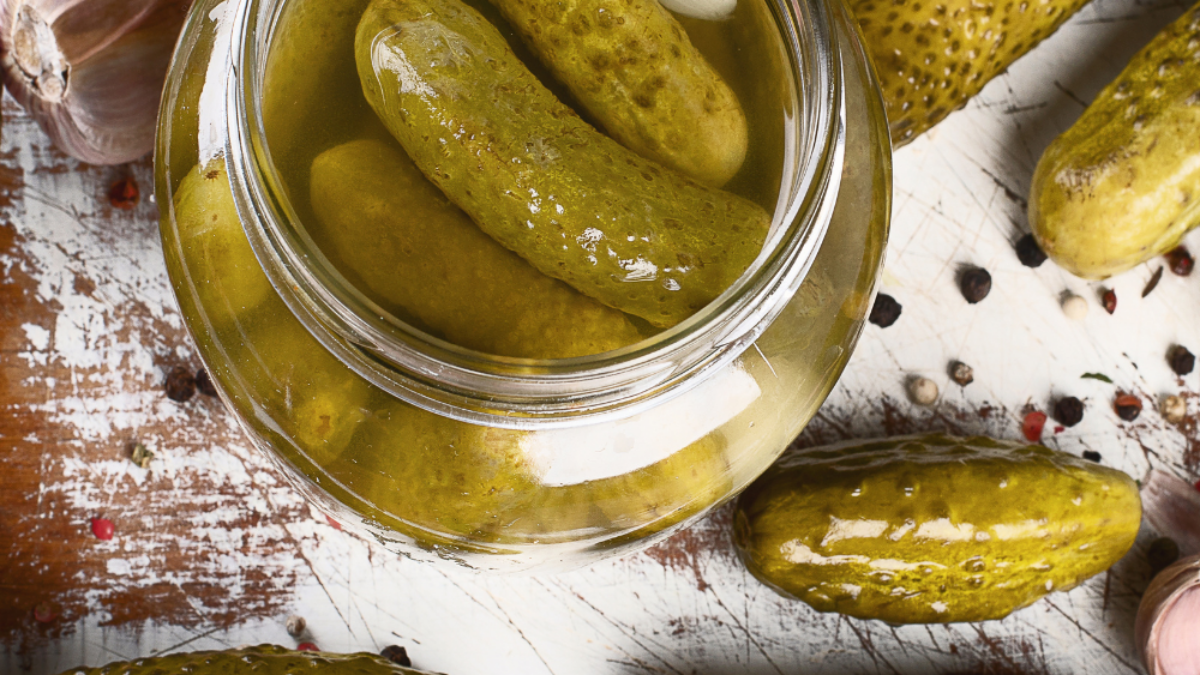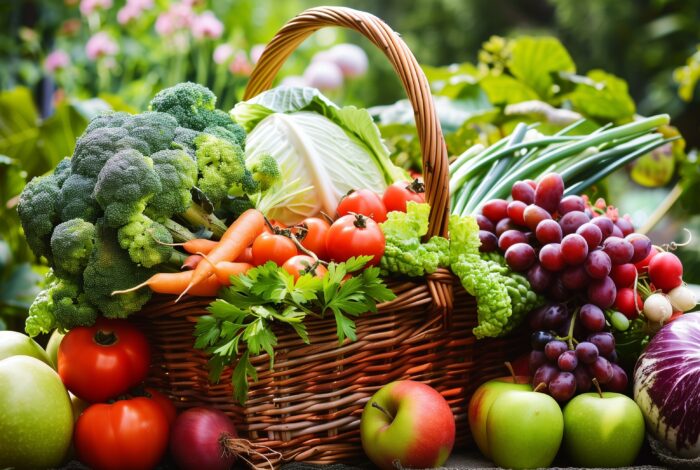Pickled cucumbers hold an important place in the Greek diet and are a traditional feature of Greek cuisine.
Pickling is a method for preserving food by either anaerobic fermentation in brine or immersion in vinegar. This method has a long tradition stemming from the need to preserve frequently consumed foods, such as vegetables, for as long as possible.
Pickled cucumber is usually eaten as a meze together with olives and feta cheese, a combination that is quite popular in Greek taverns and restaurants.
| Nutritional Value of Pickled Cucumbers | per serving: 1 medium (65 g)[1] | RDI per serving2 |
| Kcal | 7.2 | 0.4% |
| Fat (g) | 0.1 | 0.2% |
| Saturated fat (g) | 0.03 | 0.2% |
| Carbohydrates (g) | 1.4 | 0.5% |
| Fiber (g) | 0.8 | 2.8% |
| Sugar (g) | 0.7 | 0.8% |
| Protein (g) | 0.2 | 0.4% |
| Cholesterol (mg) | 0.0 | 0.0% |
| Salt (g) | 2.0 | 33.3% |
| 1 Values are based on the U.S. Department of Agriculture (USDA) nutrient database.1 2 The percentage of Recommended Daily Intake (% RDI) shows how much of the recommended daily intake of each nutrient is contained in a single serving. Calculations are based on U.S. Food and Drug Administration (FDA) daily values, based on 2,000 Kcal per day for an average healthy adult. Depending on an individual’s energy needs, % RDI can be lower or higher. | ||
Pickled cucumbers are 94% water, which explains their low caloric content. One serving yields about 7 calories.
The remaining 6% consists mainly of carbohydrates, while it contains small amounts of plant fibers, compounds that act as a ‘shield’ for our gut health.
Pickled cucumbers are a good source of probiotics. The fermentation process promotes the development of certain microorganisms that are beneficial to our health.
While nutritious, pickled cucumbers are high in salt and should be consumed with caution – especially by people who have hypertension or are trying to reduce their sodium intake. The composition of beneficial microorganisms is affected by various factors during food processing. In general, consumption of homemade pickled cucumbers prepared by natural fermentation in brine can increase the probiotic content of a meal. However, when fermentation is carried out with vinegar, probiotics are destroyed or do not develop to the same extent.
Pickled cucumber, as a probiotic-containing vegetable, can provide us with health benefits, always in the context of a balanced diet.
Probiotics are essential for good bowel health, as they help maintain healthy intestinal microflora. Due to this action, probiotics are a natural method for relieving unpleasant gastrointestinal symptoms, such as constipation, diarrhea and abdominal pain.[2]
Additionally, in recent years, more and more studies have shown that our gut microbiota has broader effects on the health of all organs and systems in the body. It has been shown that the intestinal microbiome affects the functioning of the immune system, mental health, body weight management and even the risk of chronic diseases.[3]
Of course, our diet should also include other foods that are good sources of probiotics, such as yogurt and fermented cheeses.
In conclusion, pickled cucumbers are a traditional Greek food that is both enjoyable and beneficial to our health, as long as it is consumed in moderation due to its high salt content.
BIBLIOGRAPHY
[1] USDA. Food search. Pickles, cucumber, sour. Available at: https://fdc.nal.usda.gov/fdc-app.html#/food-details/169379/nutrients. (Accessed October 2024).
[2] Bodke H, Jogdand S. Role of Probiotics in Human Health. Cureus. 2022 9:14(11):e31313. doi: 10.7759/cureus.31313.
[3]Gul S, Durante-Mangoni E. Unraveling the puzzle: Health benefits of probiotics—A comprehensive review. J Clin Med. 2024 1:13(5):1436. doi: 10.3390/jcm13051436.










